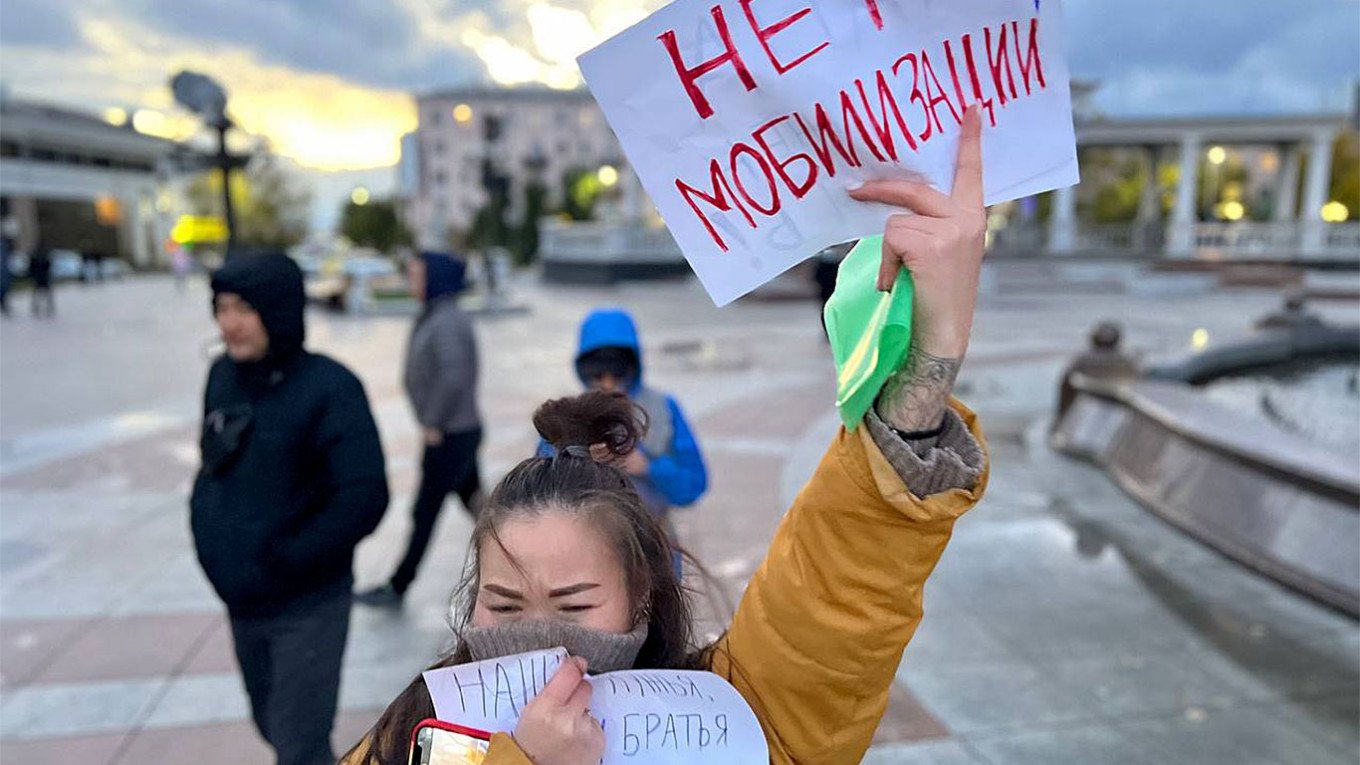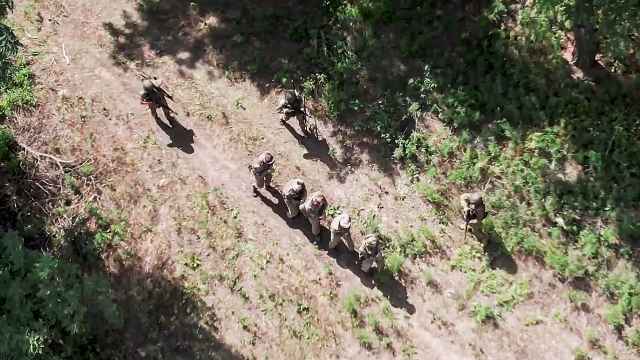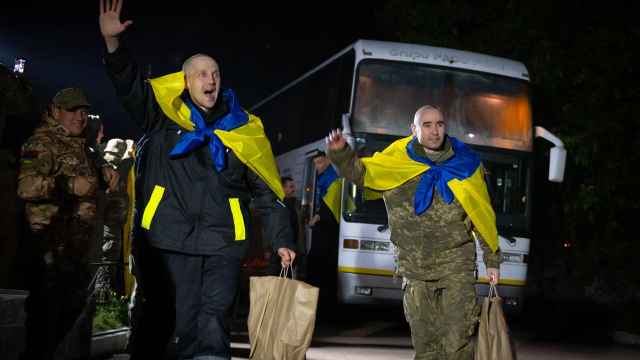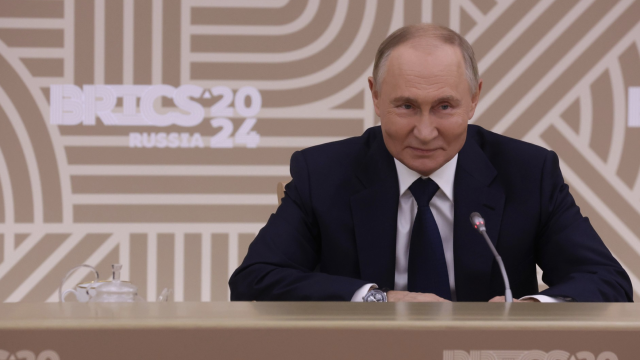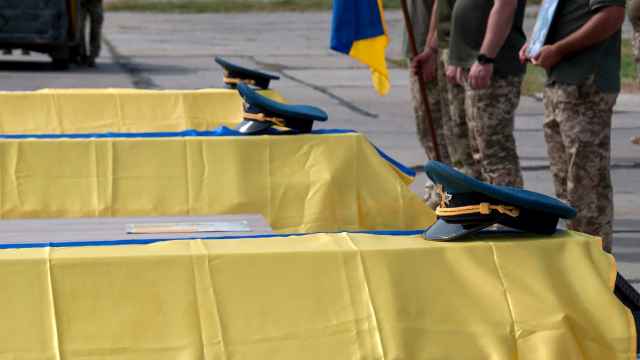Over 1,300 people were detained across Russia on Wednesday as rallies against a military mobilization declared by President Vladimir Putin for the war in Ukraine took place in areas from the Far East to the capital Moscow.
According to the independent OVD-Info police monitor, at least 1,386 protesters have been detained nationwide so far, with at least half of the count recorded in the capital Moscow.
It added that a majority of those detained were women.
Police in Moscow reportedly handed some detainees summons to the military enlistment office regardless of their experience.
The Vesna opposition movement as well as supporters of jailed Kremlin critic Alexei Navalny called on Russians nationwide to take to the streets on Wednesday evening to oppose the Kremlin’s decision to bolster its forces in Ukraine with a “partial” mobilization.
The first protests took place across cities in Siberia and the Far East, where dozens were arrested, often just minutes after the rallies began, according to local reports.
Small groups of protesters gathered in Ulan-Ude, the capital of the republic of Buryatia; Yakutsk, the capital of the republic of Sakha; and the Far East cities of Khabarovsk and Irkutsk.
Protesters in Ulan-Ude were seen carrying handwritten signs reading “No war! No mobilization!” and “Our husbands, fathers and brothers don’t want to kill other husbands and fathers.”
In the Siberian city of Tomsk, a female protester carrying a sign reading “Hug me if you are also scared” was among the 15 people detained shortly after the start of the protest, according to local Telegram news channel Ulitsa Barkhatnaya.
In Novosibirsk, Russia’s third-largest city, video published to social media showed a protester shouting “I don’t want to die for Putin or for you!”
Protests then took place across the cities in Russia’s Volga-Ural region. At least 45 people were detained in the region’s largest city Yekaterinburg, while dozens others were arrested in Perm, Chelyabinsk and Ufa, the capital of the republic of Bashkortostan, according to OVD-Info.
In the capital Moscow, several hundred people gathered on the central Stary Arbat street amid heavy police presence. Protesters could be seen chanting “No war!” “Send Putin to the trenches!” and “Let our children live!” in videos published to social media.
In St. Petersburg, protesters who gathered near the central St. Isaac's Square were quickly encircled by police, according to videos from the scene. But others continued to march through the city center.
Rallies also took place in the city of Arkhangelsk in the Far North, the southern city of Krasnodar, the Baltic exclave Kaliningrad and others.
In Kazan, the capital of the republic of Tatarstan, a small group of female protesters marched through central streets chanting “Peace to the world. No to mobilization!” after the initial rally was dispersed.
A total of 300,000 Russian reservists are expected to be called up for military service during the campaign, according to Defense Minister Sergei Shoigu.
But the mobilization efforts could be more far-reaching given the vague wording of the mobilization decree, according to human rights lawyer Pavel Chikov, who has been helping Russian soldiers opposed to the war.
A Message from The Moscow Times:
Dear readers,
We are facing unprecedented challenges. Russia's Prosecutor General's Office has designated The Moscow Times as an "undesirable" organization, criminalizing our work and putting our staff at risk of prosecution. This follows our earlier unjust labeling as a "foreign agent."
These actions are direct attempts to silence independent journalism in Russia. The authorities claim our work "discredits the decisions of the Russian leadership." We see things differently: we strive to provide accurate, unbiased reporting on Russia.
We, the journalists of The Moscow Times, refuse to be silenced. But to continue our work, we need your help.
Your support, no matter how small, makes a world of difference. If you can, please support us monthly starting from just $2. It's quick to set up, and every contribution makes a significant impact.
By supporting The Moscow Times, you're defending open, independent journalism in the face of repression. Thank you for standing with us.
Remind me later.


